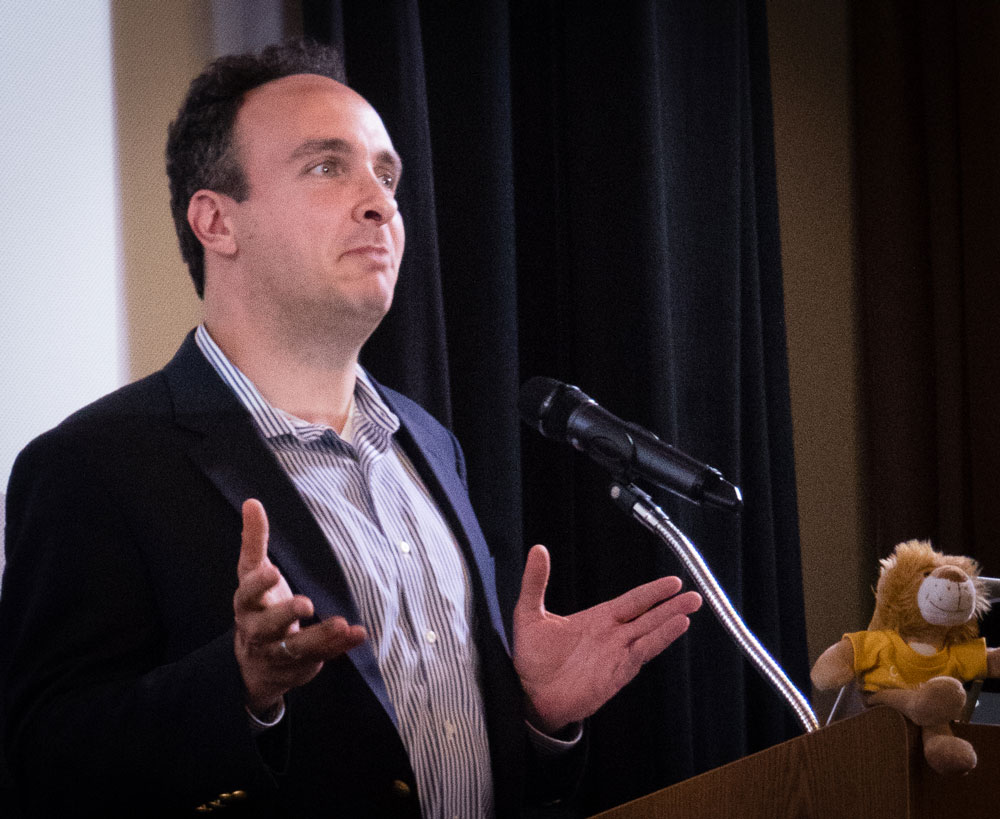Defamation 101: Tips to Reduce the Risk of Lawsuits
Dot your I’s and cross your T’s. That’s the message given by media attorney Jeffrey Kosseff of the Potomac Law

Dot your I’s and cross your T’s. That’s the message given by media attorney Jeffrey Kosseff of the Potomac Law Group. Kosseff is a former reporter with The Oregonian and he offered a load of advice for LION members and other independent journalists. His motive: to help solve problems and get you to publish your news.
Kosseff said you cannot prevent lawsuits but you can take necessary steps to reduce the risk of a successful suit. And why? The average libel verdict is $2.8 million, he said.
Step 1: Form an LLC or a similar business structure to protect your personal assets.
Step 2: Get a privacy policy on your website.
Step 3: Be very careful in reporting. Saying “allegedly” won’t shield you from a suit, and repeating what another media outlet reported, if found false and defamatory, means you can be held liable too.
Step 4: Use and rely on public documents, such as court opinions, press releases and so on. The “fair report privilege” can help immunize from successful lawsuits.
Step 5: Give sources appropriate time to respond and document your attempts to get comments.
Step 6: Investigative reports need to be vetted very carefully. Legal advice in advance of publication is between and cheaper than defending a complaint later.
Step 7: Develop a records retention policy. How long will you keep emails and documents? Those all become discoverable in a suit.
Step 8: Be careful what you put in emails and messages. "When you write an email, pretend that the subject of your story is reading it,” talk face to face and on the phone.
Step 9: Get libel insurance, but carefully read policy exclusions.
As always, act with care and fairness. Take steps to get relevant sides of controversial stories. Public figures have a higher burden to prove defamation than do common citizens; private figures, in fact, don’t have to prove actual malice.
And, of course, check your facts.
Bob Conrad is publisher of This Is Reno.
Sign up for the weekly newsletter
Join the LION mailing list to get our weekly roundup of opportunities and resources for news entrepreneurs. View our most recent issues.
Related Articles
Last call: Apply to receive $600 in travel support to attend the Independent News Sustainability Summit in Chicago
Fill out the travel stipend request form by Sunday, July 21, at midnight ET.
Igniting innovation: How RJI empowers independent news publishers to experiment with new ideas
RJI supports small newsrooms and community-centered journalists as they work to serve their communities.
How The Bedford Citizen prioritized its internal operations to pursue revenue growth and avoid burnout
Through LION’s Sustainability Lab, the team developed a master spreadsheet to track ideas and impact.